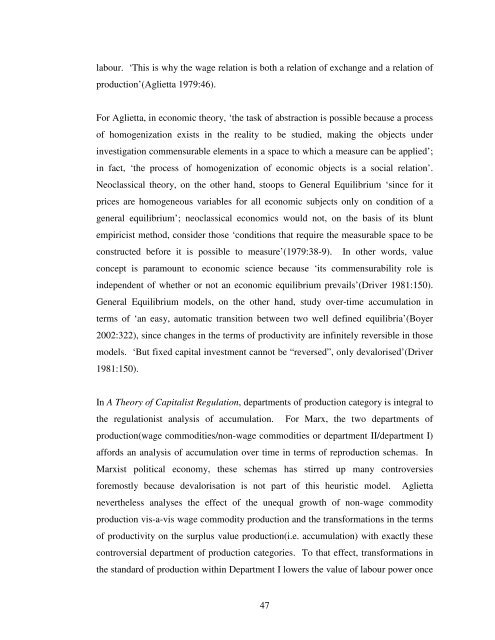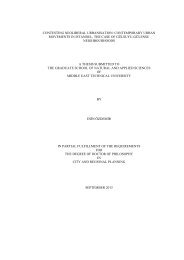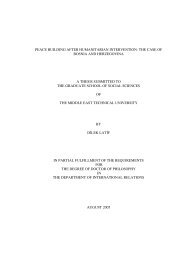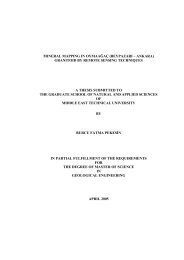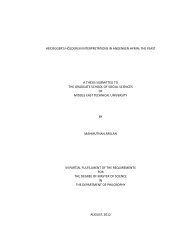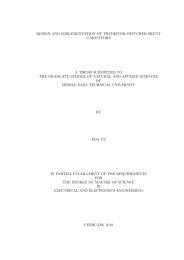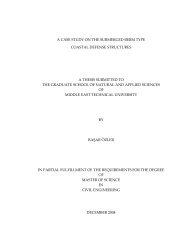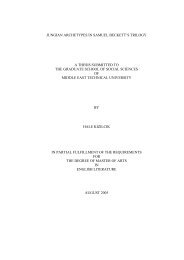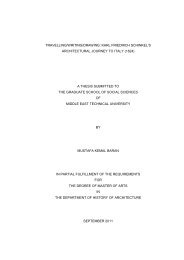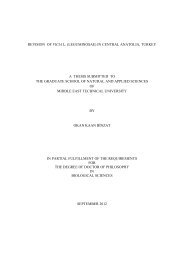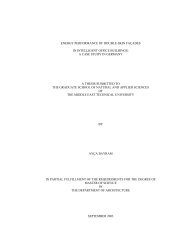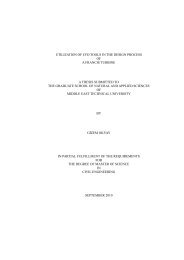View Original - Middle East Technical University
View Original - Middle East Technical University
View Original - Middle East Technical University
You also want an ePaper? Increase the reach of your titles
YUMPU automatically turns print PDFs into web optimized ePapers that Google loves.
labour. ‘This is why the wage relation is both a relation of exchange and a relation of<br />
production’(Aglietta 1979:46).<br />
For Aglietta, in economic theory, ‘the task of abstraction is possible because a process<br />
of homogenization exists in the reality to be studied, making the objects under<br />
investigation commensurable elements in a space to which a measure can be applied’;<br />
in fact, ‘the process of homogenization of economic objects is a social relation’.<br />
Neoclassical theory, on the other hand, stoops to General Equilibrium ‘since for it<br />
prices are homogeneous variables for all economic subjects only on condition of a<br />
general equilibrium’; neoclassical economics would not, on the basis of its blunt<br />
empiricist method, consider those ‘conditions that require the measurable space to be<br />
constructed before it is possible to measure’(1979:38-9). In other words, value<br />
concept is paramount to economic science because ‘its commensurability role is<br />
independent of whether or not an economic equilibrium prevails’(Driver 1981:150).<br />
General Equilibrium models, on the other hand, study over-time accumulation in<br />
terms of ‘an easy, automatic transition between two well defined equilibria’(Boyer<br />
2002:322), since changes in the terms of productivity are infinitely reversible in those<br />
models. ‘But fixed capital investment cannot be “reversed”, only devalorised’(Driver<br />
1981:150).<br />
In A Theory of Capitalist Regulation, departments of production category is integral to<br />
the regulationist analysis of accumulation. For Marx, the two departments of<br />
production(wage commodities/non-wage commodities or department II/department I)<br />
affords an analysis of accumulation over time in terms of reproduction schemas. In<br />
Marxist political economy, these schemas has stirred up many controversies<br />
foremostly because devalorisation is not part of this heuristic model. Aglietta<br />
nevertheless analyses the effect of the unequal growth of non-wage commodity<br />
production vis-a-vis wage commodity production and the transformations in the terms<br />
of productivity on the surplus value production(i.e. accumulation) with exactly these<br />
controversial department of production categories. To that effect, transformations in<br />
the standard of production within Department I lowers the value of labour power once<br />
47


